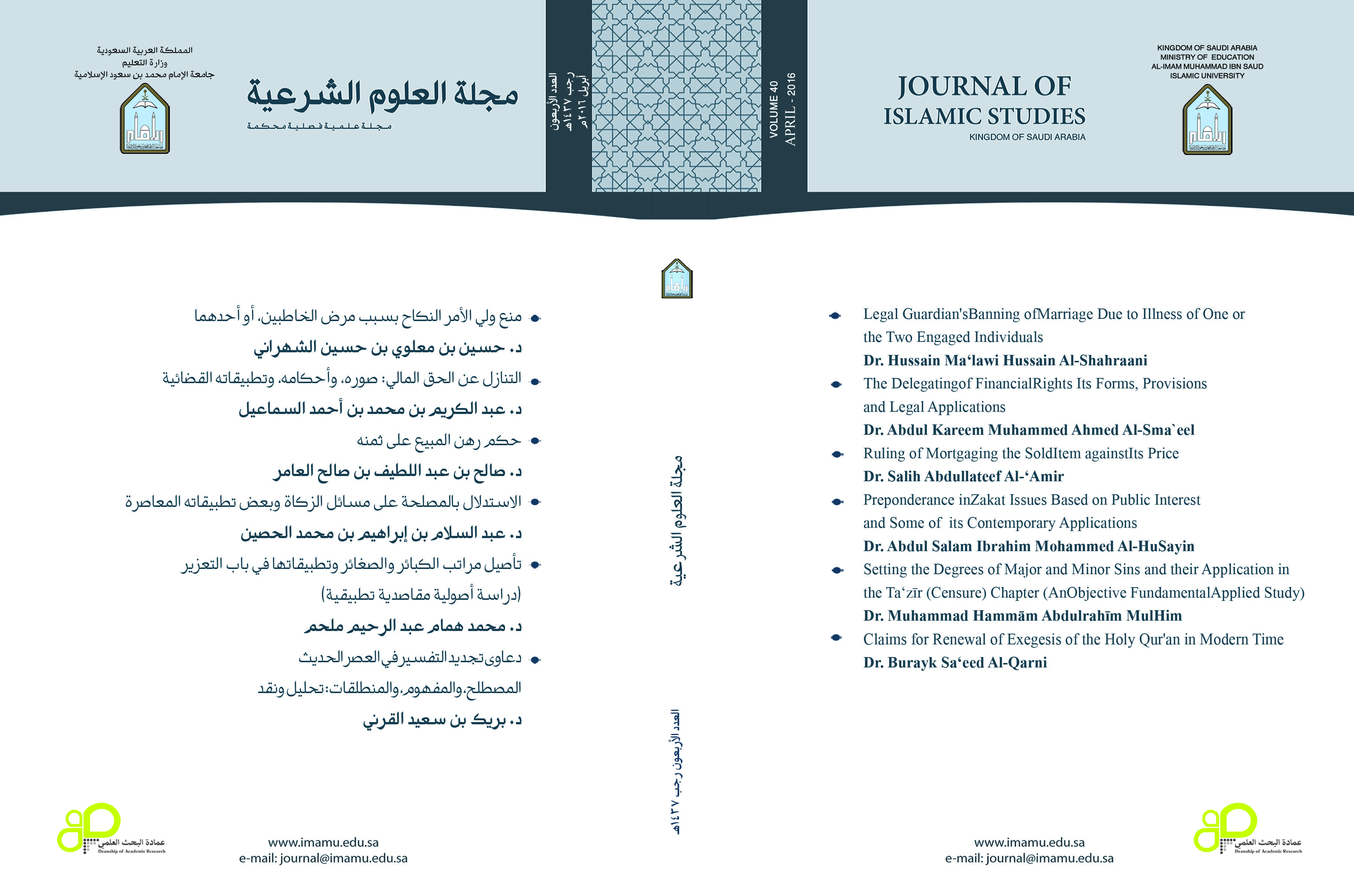Setting the Degrees of Major and Minor Sins and their Application in the Ta‘zīr (Censure) Chapter (An Objective Fundamental Applied Study)
Abstract
This study explores the theme of setting the basis for the degrees of major and minor sins by taking into account the fundamental and objective texts and rules. Notably, the degrees of major and minor sins, which is one of the sections of the fiqh of the ranking of rules and their application, are very important for both individuals and societies, as this makes it feasible for individuals to define the priorities for avoiding vices and sins in case of discrepancy and confusion or, at least, to recognize the corruptive aspects of each sin so as to avoid the means which are conducive to any degree of a sin. As for the society, this is important for such fields as criminal jurisprudence, Ta‘zīr, testimony and the prevention of vice.
This study has shed light on the basis for ranking the degrees of major and minor sins, by explaining the concept of major and minor sins along with their types and stating the texts revealing their degrees. The study has also set a system of rules clarifying the degrees of major and minor sins as well as the means to differentiate between them. This system includes a number of objective fundamental rules that help categorize the degrees of major and minor sins in addition to mentioning the general and special applications in the Ta‘zīr chapter.




